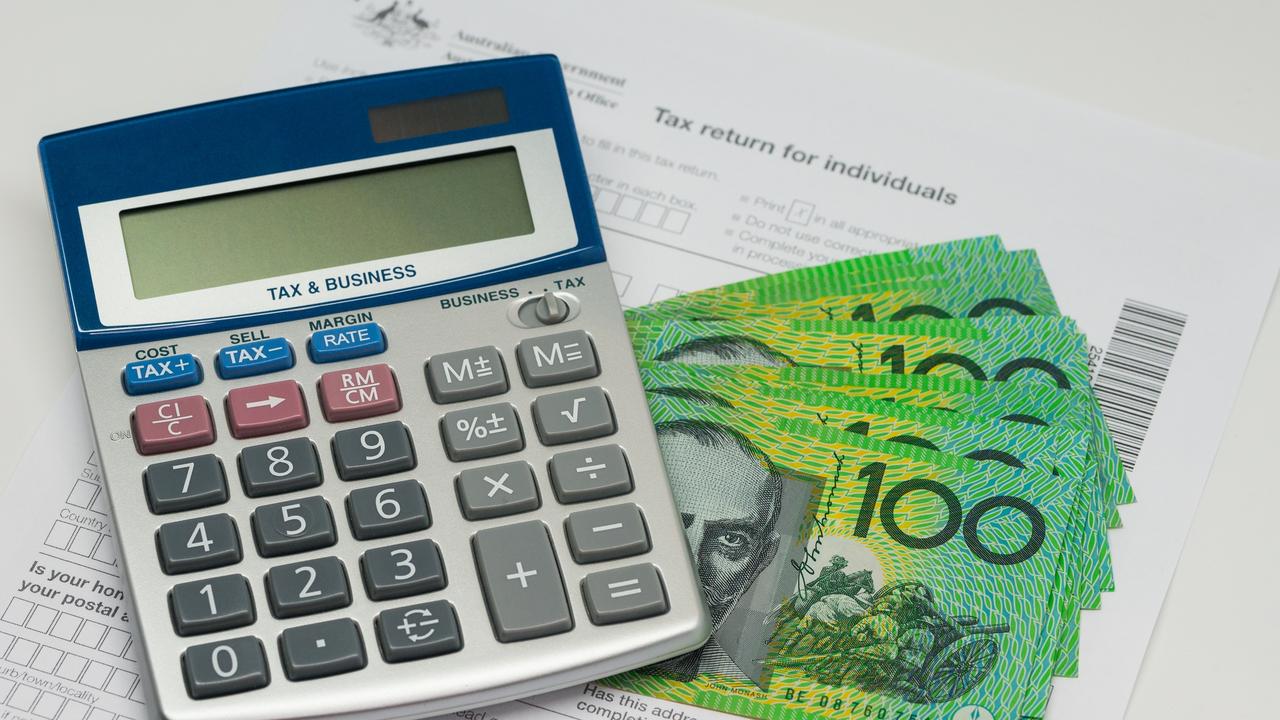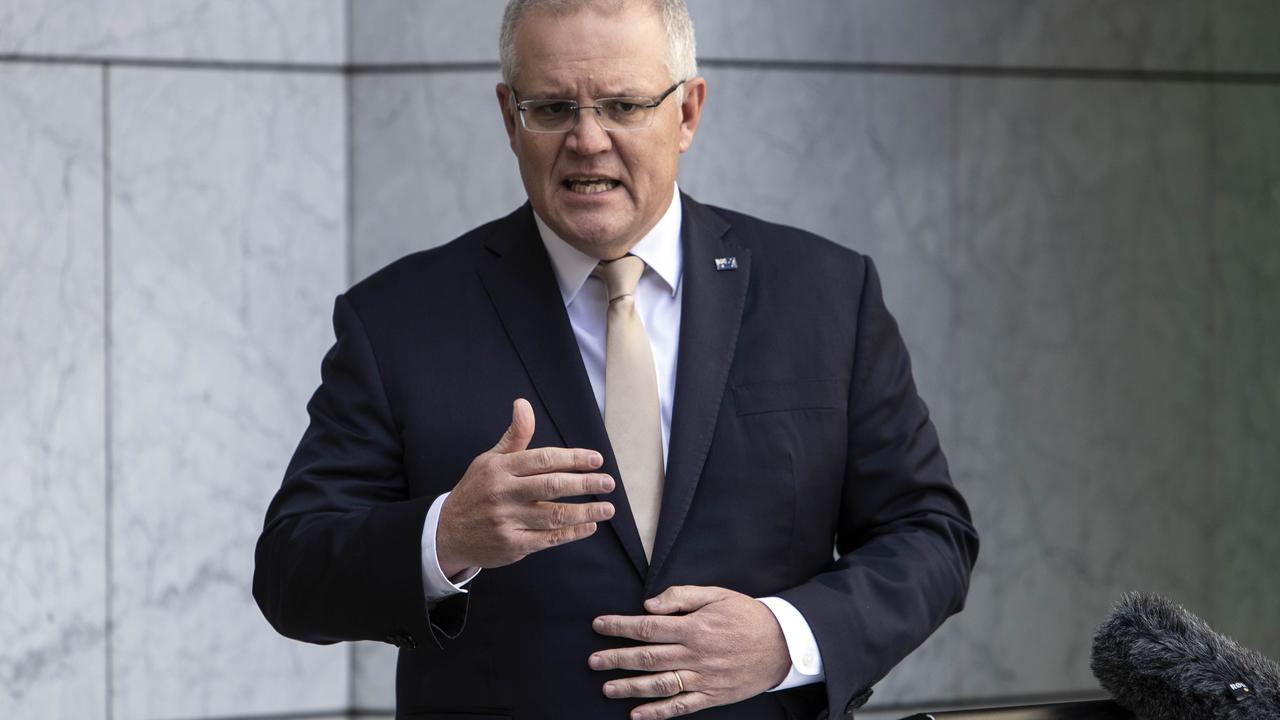ATO issues new crackdown warning over COVID superannuation claims
The tax office has issued a brand new warning to Aussies – and if you’ve done the wrong thing, you can expect to soon pay dearly.
Aussies have jumped at the chance to withdraw cash from their super balances this year – but if you’ve flouted the rules, it could soon come back to bite you.
Under the Super Early Release Scheme, which was introduced to help Aussies through the coronavirus crisis, eligible Australians were able to grab $10,000 from their super last financial year and a further $10,000 in 2020-21.
But to be eligible, a citizen or permanent resident of Australia and New Zealand must need the cash as a direct result of the economic impact of COVID-19, and must be either unemployed, receiving government benefits such as JobSeeker, have been made redundant as of January 1 or had their work hours cut by at least 20 per cent.
Sole traders are also eligible if their business was suspended or had a drop in turnover of 20 per cent or more.
However, applicants do not have to attach evidence to support their claim, with the Australian Taxation Office simply advising “you should keep records and documents to confirm your eligibility as we may ask you for this information”.
There was an immediate rush to take advantage of the super scheme, and soon worrying reports began to emerge that some Australians were claiming their money fraudulently and spending it on frivolous items.
In fact, a 60 Minutes report earlier this month showed some Australians who have withdrawn $10,000 from their superannuation have been splashing the cash on “non-essential luxuries” like plastic surgery and new cars.
On Thursday, the ATO revealed it was now starting a preliminary examination of eligibility for claims four months after the scheme kicked off.
Assistant commissioner Sonia Corsini told news.com.au the “vast majority” of those who had withdrawn super were “honest and doing the right thing” and said the onus was on the applicant to ensure they meet the eligibility criteria and that the information they provide is correct.
She said the key requirement was made clear “throughout the application process”.
“The ATO has been undertaking compliance since the commencement of the scheme,” Ms Corsini said.
“The ATO has controls in place to prevent or detect poor behaviours. Applications are declined where the applicant does not meet certain eligibility criteria (such as submitting a second application in the same income year) or where a risk of fraud is detected.
If you have applied and think you were ineligible and may have made a mistake, or you’re just not sure, it’s much better to give us a call and make a voluntary disclosure than waiting to be audited. We’ll work with you to remedy your position.”
Ms Corsini said inquiries were already being made relating to cases where the ATO had “serious concerns” the application had not been made “genuinely”.
“Compliance remains one of our priorities to ensure the integrity of the tax and super systems,” she said.
“We will take action where people deliberately exploit the system.”
RELATED: Vic lockdowns feel ‘warlike’: Treasurer

The ATO has a variety of data sources to check incorrect claims and help form a response to the “most serious behaviour”, including single touch payroll, which shows in real time whether people are employed and how much they are being paid.
Other sources of information include income tax returns, information reported to the ATO by super funds and third party data from agencies including Services Australia and Home Affairs.
Red flags likely to attract the tax man’s attention include applying for the release of super when there is no change to your regular salary and wage or employment information, artificially arranging your affairs to meet the eligibility criteria and making false statements or fraudulent attempts to meet the eligibility criteria.
Also, temporary resident applicants attempting to apply as a permanent resident or citizen after July 1, 2020 and withdrawing and recontributing super for a tax advantage will sound alarm bells for the ATO.
“We understand that some applicants may have made a genuine mistake and if this is the case we will work with them to help resolve their position,” Ms Corsini said.
“Only in serious cases where an applicant has deliberately applied knowing that they were not eligible will we apply penalties.”
In those circumstances, the cash paid under the COVID-19 early release of superannuation will become assessable income and will need to be included in the individual’s tax return and tax paid on the released amount.
“In addition, financial penalties may apply in the most serious cases where the applicant makes false statements or attempts to mislead us,” she said.
“This could include penalties from around $4000 to more than $12,000 for each false and misleading statement.”
Last week, The Sydney Morning Heraldreported that tax office second commissioner Jeremy Hirschhorn had told a Senate COVID-19 committee that no Australian had so far been prevented from withdrawing from their super based on questions such as whether they had lost their job.
“We will never have enough information to reject quickly. We give money to people on their say so. We work on the assumption that Australians are honest,” he said.
SCOMO SPEAKS
Speaking to the media last Thursday, Prime Minister Scott Morrison rejected claims Aussies were wasting their early super payments or placing their future retirement under threat.
“Superannuation doesn’t belong to the superannuation fund managers. It belongs to the superannuation fund members,” Mr Morrison said, after being asked by a reporter if the cash was “being used for purposes it wasn’t intended for”.
RELATED: PM admits Vic lockdown isn’t working

“The intent for which it is used is decided by the person whose money it is,” he said.
“But (in) the overwhelming majority of cases … my advice is, people are using it actually to restructure their own personal balance sheets.’’
Mr Morrison’s comments came as the government revealed $42 billion was expected to be withdrawn from Aussie super balances by the end of the year, a steep jump from the previous estimate of $29 billion back in March.




